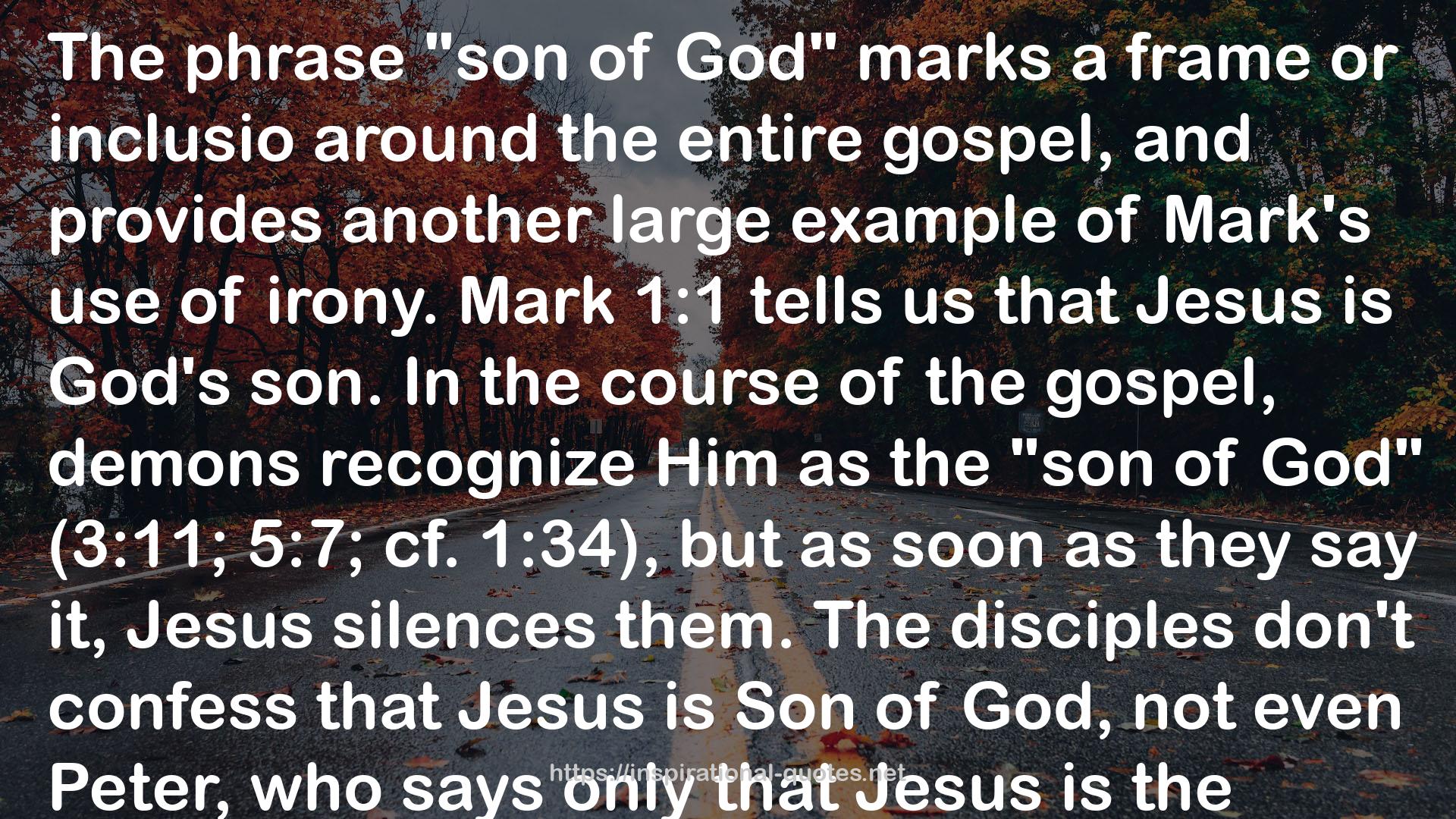" The phrase "son of God" marks a frame or inclusio around the entire gospel, and provides another large example of Mark's use of irony. Mark 1:1 tells us that Jesus is God's son. In the course of the gospel, demons recognize Him as the "son of God" (3:11; 5:7; cf. 1:34), but as soon as they say it, Jesus silences them. The disciples don't confess that Jesus is Son of God, not even Peter, who says only that Jesus is the "Christ" (8:29). As readers, we know from the first verse that Jesus is the "Son of God"; we see that the demons know who Jesus is. As we read along, we hope that one of the disciples will catch on. Finally, just as Jesus dies, and because of the way He dies, the person confessing Jesus as the Son is not a disciple, but a Roman centurion (15:33–39). Though no other human being confesses Jesus as the "son of God," God the Father uses this title in a few places. The first is at the beginning of the gospel in the baptism scene. Jesus is baptized and called the "beloved Son." In the same passage, Mark tells us that the heavens are "opened." The Greek word here is schizo, and the use of this word to describe the opening of the heavens at the baptism is unique to Mark. It is used regularly in the Old Testament to describe the Lord's coming by rending the heavens (Is. 64:1; Ps. 18:9). At the baptism, the Father shows that He has torn open the sky to come to deliver His people. Jesus' arrival is the sign that the heavens have been opened. Later, Mark uses the same verb for the rending of the temple veil (15:38), just before the centurion confesses Jesus. Heavens rent, and the Father identifies His Son; the temple curtain is divided, and a Gentile echoes the Father's words. "
― Peter J. Leithart , The Four: A Survey of the Gospels
